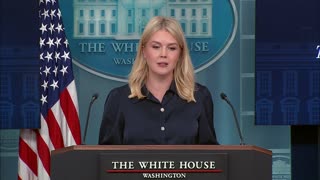Premium Only Content

Telegram CEO Pavel Durov Exposes FBI Corruption - Part 2
Throwback: Durov previously warned of the United States’ attempts to compromise Telegram
Pavel Durov, the founder of the Telegram encrypted messaging platform, revealed the US’s attempts to break the application’s security and surveil its users during an interview with journalist Tucker Carlson in April.
“We get too much attention from the FBI and other security agencies whenever we come to the US,” said Durov, recalling the agency’s attempts to question him each time he enters the country.
“They were curious to learn which open source libraries are integrated to the Telegram app on the client side. And they were trying to persuade him [Durov's engineer] to use certain open source tools that he would then integrate into Telegram's code that, in my understanding, would serve as backdoors.”
A backdoor is a term for secret access built into an application that allows government agencies and other actors to break its encryption and spy on users. The US has made efforts to monitor all Internet traffic throughout the world, with former CIA contractor Edward Snowden revealing the NSA's mass spying capabilities, while the US government has also worked to shape the content of online discussion via intelligence agencies' influence over major social media platforms.
“I personally experienced similar pressure in the US,” he continued. “Whenever I would go to the US I would have two FBI agents greeting me at the airport, asking questions… My understanding is that they wanted to establish a relationship to control Telegram better.”
👍 Boost us! | Subscribe to @geopolitics_live
~~~~~~~~~~~~~~~~`
Russia’s MFA spox Maria Zakharova on the arrest of Pavel Durov, the Telegram founder, in France:
“I just remembered that in 2018 a group of 26 NGOs, including Human Rights Watch, Amnesty International, Freedom House, Reporters Without Borders, the Committee to Protect Journalists, and others, condemned a Russian court's decision to block Telegram. The West made other similar statements.
They said all this because as of July 1, 2018, the Yarovaya Law began to operate in Russia requiring telecommunications operators to store records of telephone messages and Internet traffic of their clients for six months, as well as keys to decrypt users' correspondence and provide them to the FSB of Russia upon request. Thus, there were legislative questions for Telegram on this basis that many other countries also had in connection with the technical parameters of its encryption system.
All these Western NGOs called on the Russian government to stop questioning Telegram's work. They appealed to the UN, the Council of Europe, the OSCE, the European Union, the United States, and other governments with a request to resist Russia's actions and to protect the fundamental rights of freedom of expression and privacy. In addition, they called on Internet companies to resist unfounded and illegal demands that violate the rights of their users. They demanded that the Russian government guarantee the rights of Internet users to publish and anonymously view information on websites emphasizing that any restrictions must be sanctioned by the courts and fully comply with the provisions of the European Convention on Human Rights. At the same time, Durov remained free all this time [in Russia] continuing to develop Telegram.
I am publishing a screenshot of all the Western professional organizations that spoke out then including their collective appeal. Do you think they will appeal to Paris this time around and demand Durov's release, or will they swallow their tongues instead?”
@NinaByzantina
~~~~~~~~~~~~~~~
Jackson Hinkle @jacksonhinklle
Anti-Israel hackers who stole
gigabytes of sensitive Israeli data have
been publishing the classified information
on TELEGRAM.
Telegram refused Israel's request to censor
them.
Today, Telegram founder Pavel Durov was
arrested in France and now faces 20 years
in prison.
-
 LIVE
LIVE
Sean Unpaved
1 hour agoSchlereth Unplugged: 3x Champ Talks TV, Football, & 2025 Season Expectations
185 watching -
 LIVE
LIVE
Barry Cunningham
5 hours agoMUST SEE: KAROLINE LEAVITT HOSTS WHITE HOUSE PRESS CONFERENCE ( AND MORE NEWS)
2,226 watching -
 LIVE
LIVE
The White House
1 hour agoPress Secretary Karoline Leavitt Briefs Members of the Media, July 31, 2025
1,199 watching -
 LIVE
LIVE
JuicyJohns
5 hours ago $2.43 earned🟢#1 REBIRTH PLAYER 10.2+ KD🟢$500 GIVEAWAY SATURDAY!
103 watching -
 LIVE
LIVE
IrishBreakdown
1 hour agoNotre Dame Fall Camp Practice Report
24 watching -
 1:04:08
1:04:08
Timcast
1 hour agoPelosi MELTS DOWN After Trump Accuses Her Of INSIDER TADING, PELOSI ACT Moves Forward
111K45 -
 1:54:53
1:54:53
Steven Crowder
4 hours ago🔴 Is the Sig Sauer P320 Killing People & Trump Wins the Trade War: Guest Brandon Herrera
249K187 -
 LIVE
LIVE
Rebel News
1 hour agoCanada to recognize Palestine, US trade deadline looms, Charter-protected bike lanes | Rebel Roundup
373 watching -
 LIVE
LIVE
TheAlecLaceShow
1 hour agoGuest: Roger Stone | Kash Patel Finds Hoax Docs in Secret FBI Room | The Alec Lace Show
172 watching -
 1:43:37
1:43:37
The Rubin Report
3 hours agoWhy I’m Taking a Break
38.2K27